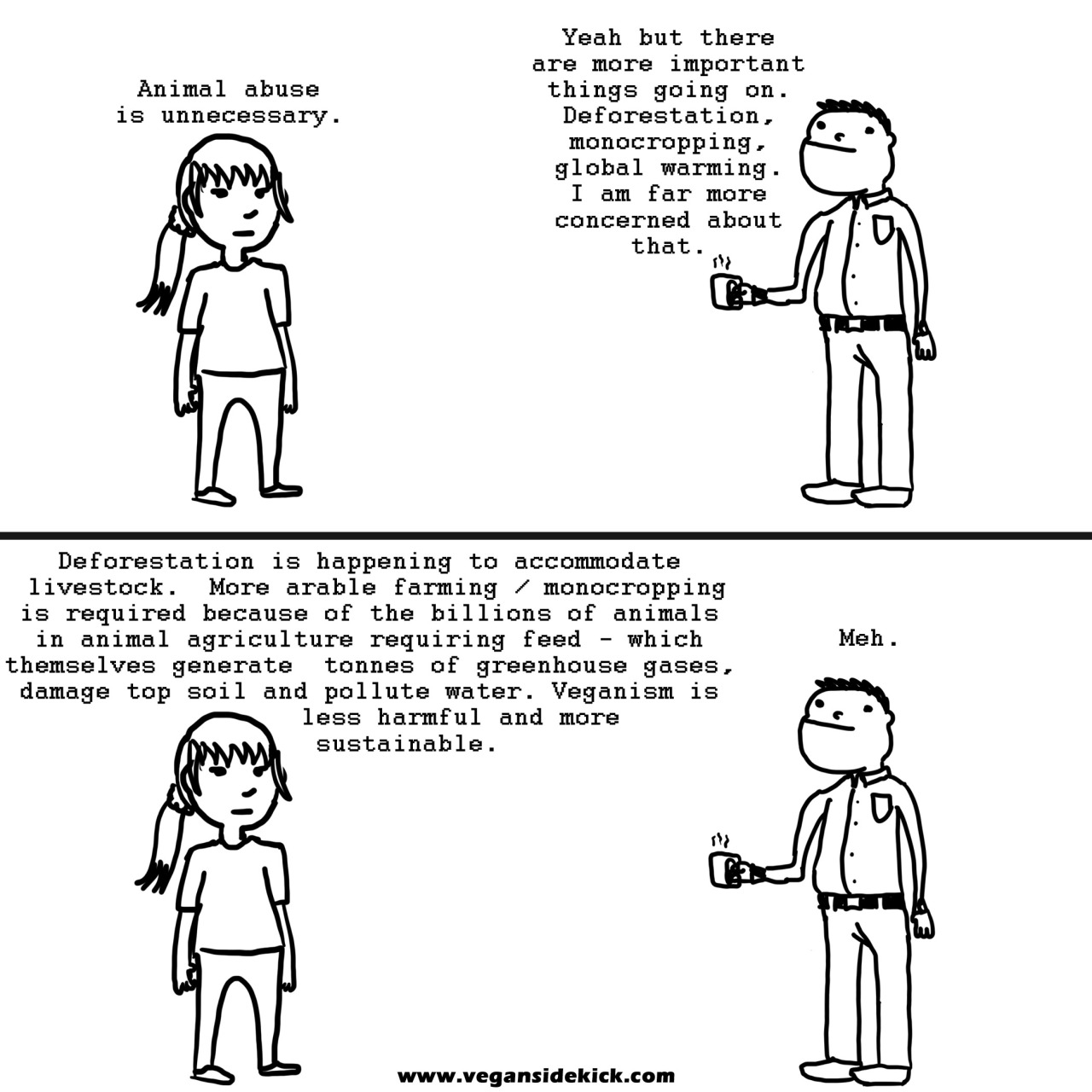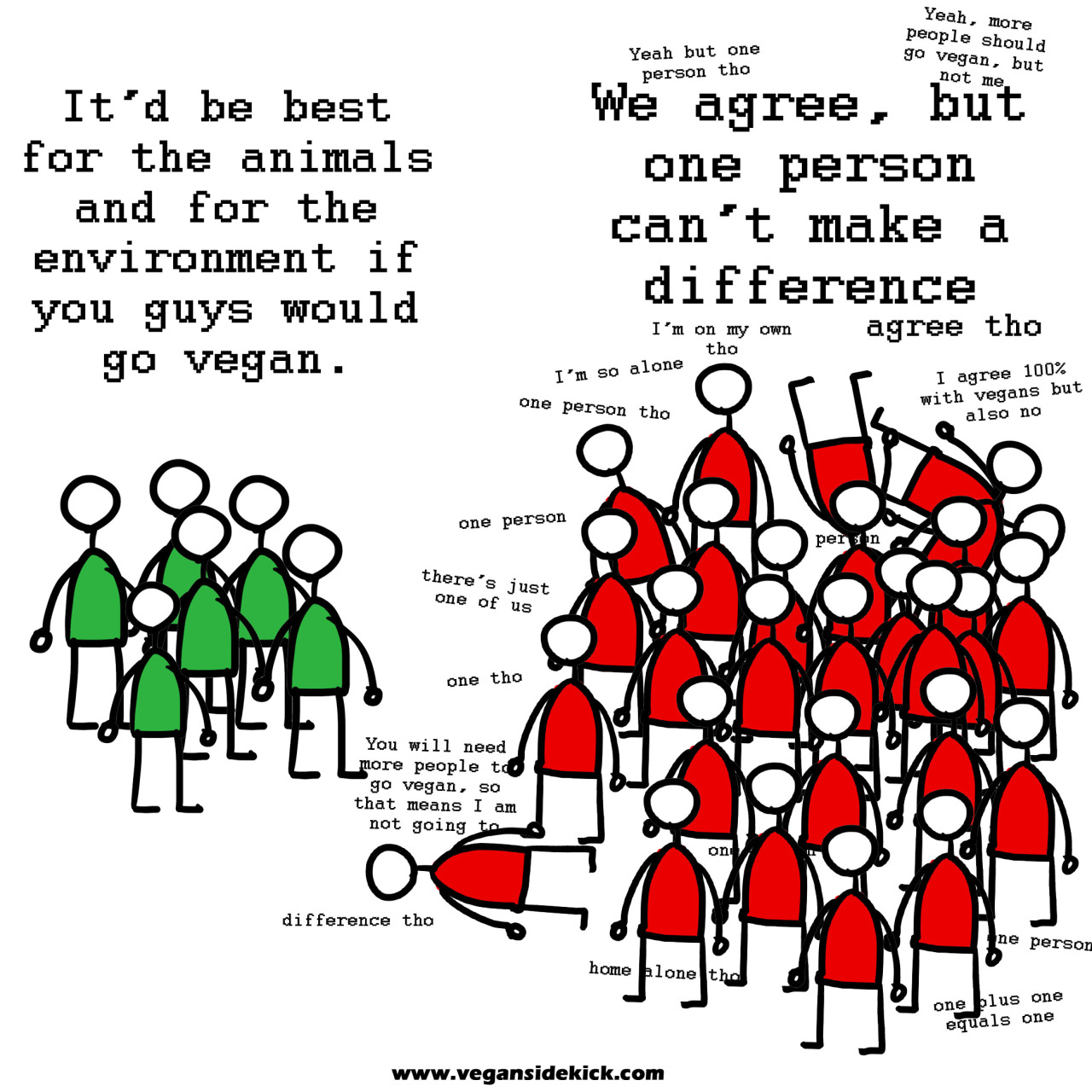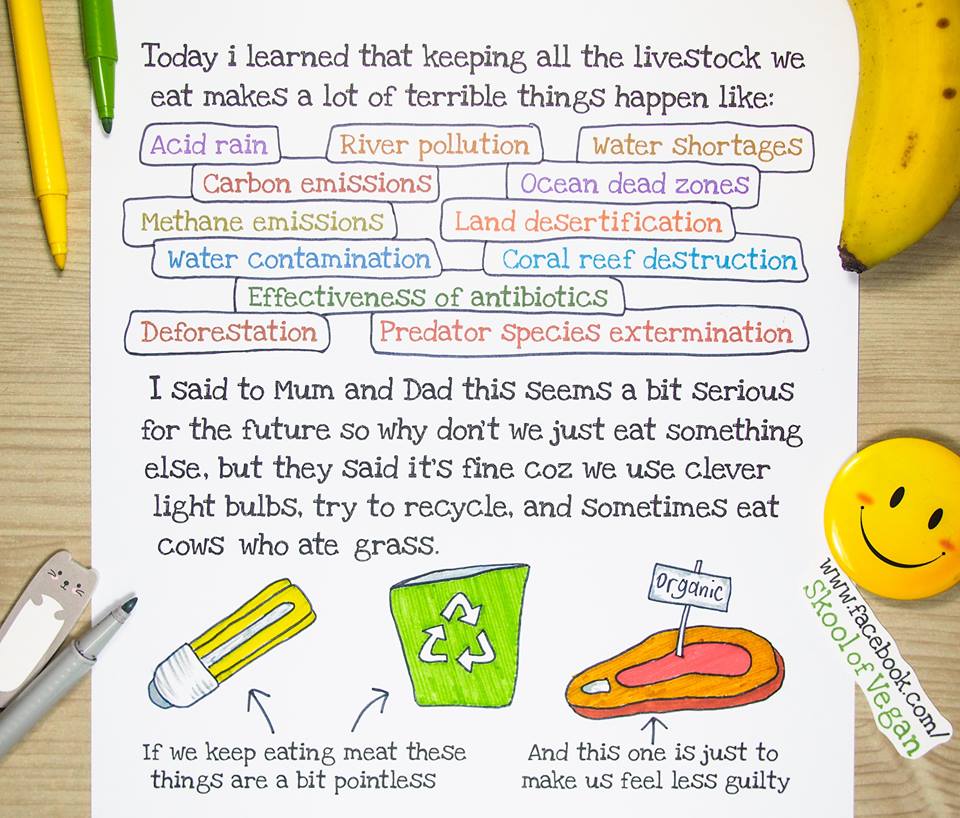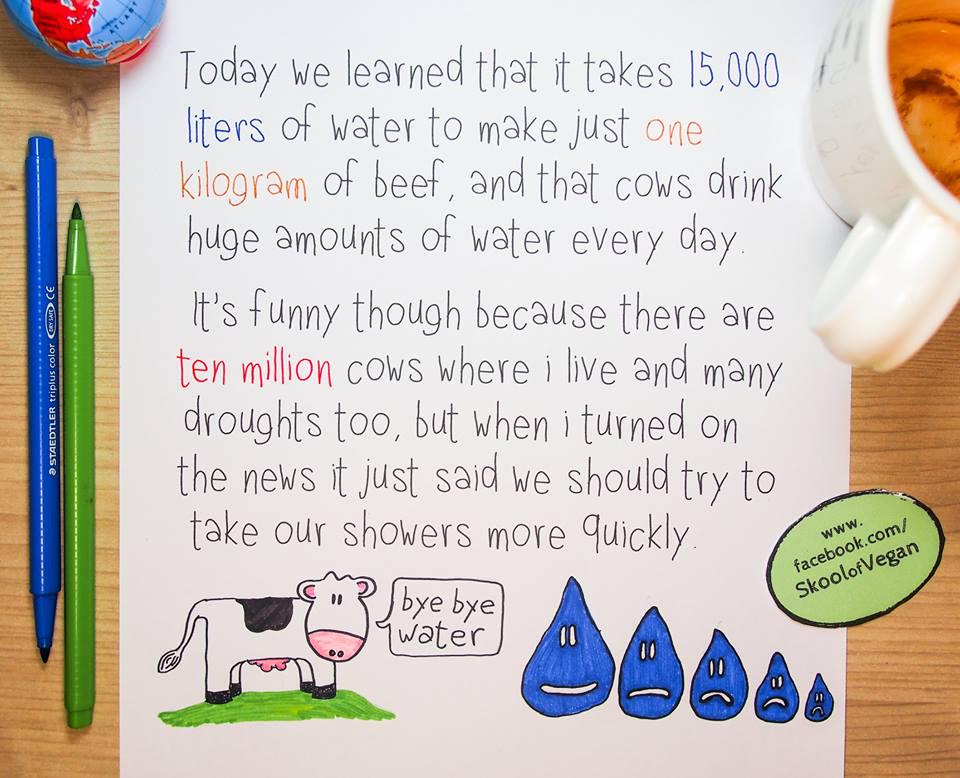
After a month's hiatus, I'm back with the next installment of The Vegan Pagan series. If you haven't read the previous installments, you can find them here:
Introduction
In an effort to limit the number of posts in this series, I'm glossing two related topics this month; the relationship between animal agriculture and climate change, and the relationship between animal agriculture and food equity. That said, it should be explicitly noted that I will not be discussing the impacts of animal agriculture on groundwater pollution, deforestation, wildlife habitat encroachment, ocean ecosystem depletion and the eradication of unique animal and plant species as a result of these factors. I am only addressing the singular problems of greenhouse gas (GHG) emissions as they relate to animal agriculture, and animal agriculture as it relates to global food access. I invite the reader to investigate these other matters independently; some are covered in the linked research, and the rest are easily accessed through Internet scholarship searches like these: animal agriculture + groundwater pollution | animal agriculture + deforestation.
Climate Change
The link between climate change and animal agriculture is well-documented in international, peer-reviewed sources. A 2006 report by the United Nations Food and Agriculture Organization (FAO) entitled "Livestock's Long Shadow" places the amount of GHGs attributable to animal agriculture at 18%, higher than emissions from planes and cars combined. By itself, this is an extraordinary number, but a 2009 report commissioned by the Worldwatch Institute entitled "Livestock and Climate Change" challenges it by including uncounted, overlooked and misallocated livestock-related GHG emissions in its estimate. Authors Robert Goodland and Jeff Anhang report that at least 51% of all GHG emissions are directly attributable to livestock respiration, methane, production of animal products and other relatable sources. More recently, the FAO revised its 18% number down to 14.5% based on the most current Intergovernmental Panel on Climate Change report but also called for a voluntary 30% reduction in emissions from the animal agriculture industry to help combat the global population's growing demand for animal products. So these new FAO numbers by no means represent a decreased concern about the problem of animal agriculture as it relates to climate change. They still place the problem on par with that of GHGs from planes and cars, and they still don't account for the factors Goodland and Anhang address in the Worldwatch Institute report.
These organizations and many others are unequivocal in their position that animal agriculture is a significant contributor to climate change, placing the consumption of meat, dairy and eggs at least on par with fossil fuel use. At worst, their assessments indicate this consumption is the most damaging thing humanity does to the climate, so damaging that "Livestock and Climate Change" advocates the creation and marketing of meat and dairy analogs (e.g. nut and grain meats, cheeses and milks) to consumers as a means of reducing that damage. How much can a vegan diet mitigate climate change? In a recent study entitled "Dietary greenhouse gas emissions of meat-eaters, fish-eaters, vegetarians and vegans in the UK" the journal Climatic Change reported that meat-eaters have three times the impact on GHG emissions than do vegans, with vegetarians scoring squarely in the middle (a summary of the report can be found here). Perhaps this is why the UN weighed in on the matter in a 2010 report that urged a global shift toward a vegan diet (commentary from The Guardian here).
These are not cherry-picked sources1. They are the best scientific minds of our generation, and they all believe that meat, dairy and egg consumption is driving climate change. They all advocate a global shift toward a vegan diet in order to mitigate the impact of animal agriculture on GHG emissions. They are the equivalent in climate science of the World Health Organization's warning that we will lose the benefit of antibiotics in this century if we don't stop feeding them to livestock animals in sub-therapeutic doses. Simply put, animal agriculture is a threat to both planetary and human well-being on many fronts, but perhaps most threatened are those people who have no food at all because of the global demand for meat, dairy and eggs.
Food Equity
Some 805 million people in the world do not have enough food to lead a healthy active life. That's about one in nine people on earth.
The vast majority of the world's hungry people live in developing countries, where 13.5 percent of the population is undernourished.
Poor nutrition causes nearly half (45%) of deaths in children under five - 3.1 million children each year.
One out of six children -- roughly 100 million -- in developing countries is underweight.
One in four of the world's children are stunted. In developing countries the proportion can rise to one in three.
This is the problem of world hunger as it is right now, but these numbers are not static. As previously mentioned, the population of the world is increasing and with it the demand for meat, dairy and eggs. This is why the 2010 UN report mentioned above also cites world hunger as a primary reason for its support of the vegan diet:
"Impacts from agriculture are expected to increase substantially due to population growth increasing consumption of animal products. Unlike fossil fuels, it is difficult to look for alternatives: people have to eat. A substantial reduction of impacts would only be possible with a substantial worldwide diet change, away from animal products."
And yet in 2013, for every 1 lb of sweet corn grown in the United States for human consumption, 260 lbs of field corn were grown for animal feed. Using the NPR chart I've previously referenced in this series, the 6.7 lbs of feed needed to produce 1 lb of ground beef equals 39 lbs of meat produced with the resources that might have been used to grow 260 lbs of vegetables for human consumption2. Simply put, if Americans adopted a plant-based diet, they could provide food security to the 14.5% of American households in need of it with vegetables to spare.
In all, roughly 40% of the world's arable land is used for food production, while only a quarter of that food is for human consumption. The rest, a staggering 30% of the world's arable land, is used to produce animal feed and commands a third of the world's fresh water. Worse, the meat resulting from this industrialized animal agriculture is not divided evenly. For instance, Americans eat 270 lbs of meat a year on average, while Bangladeshis eat 4 lbs. If the entire world were to eat as much meat as Americans do, the global land required would be 75% more than is already used, a number so high the Earth would have to be quite a bit larger to support it. Meanwhile, much of the world gets no food at all or raises livestock feed for export to countries with a high demand for meat, creating an unequal burden of production versus consumption between the poorest and richest people on the planet.
This is why even conservative researchers are calling for a global decrease in the consumption of meat, while most are calling for the widespread adoption of a vegetarian or vegan diet in order to create and sustain food security for the world's growing population. Widespread adoption of a plant-based diet would leave the Earth's arable land and fresh water for use in the production of food crops for people and not feed crops for livestock. And as we've already seen, it would dramatically reduce the impacts of animal agriculture on climate change.
The Pagan Connection
A vegan diet does more to reduce GHG emissions than never flying and never driving a car. It is a responsible choice that reflects current scientific understanding about the impacts of animal agriculture upon the climate. It is the only diet seven billion people (and counting) can eat that protects the planet from runaway global warming and provides food security for everyone. As Pagans, people who profess at least a reverence for the Earth and the life it supports, can we understand that what we eat has a profound impact upon the Earth we hold sacred? Can we find it in ourselves to reconcile our food choices with our spirituality? Can we choose to eat in a way that helps to ensure other people are able to eat? Can we adopt an active, practical and progressive expression of our faith that aligns our diet with our values?
Many of you have heard the argument that you cannot be Pagan if you are not also vegan, and it's an unsettling statement, to be sure. The answer, of course, is that we can be what we want and eat what we want. However, if we call upon the natural world as an ally, we must ask ourselves whether or not we can expect a positive reply if we refuse to address and mitigate the impacts of our life choices upon the Earth. We are not obligate carnivores; we can live and thrive on a plant-based diet. So why not choose to do so, when that choice would have such a powerful, positive impact? These are the questions so many vegan Pagans have asked themselves at the crossroads, and they are the questions I place gently before you now as a friend and fellow Pagan.
Thank you for reading. I wish you every good and sacred thing, and I'll be back in February with the next installment of the series.
Mirrored from:
http://witchesandpagans.com/pagan-culture-blogs/gael-ur/the-vegan-pagan-climate-change-and-food-equity.html
1. Actually, none of my sources are cherry-picked, as various commenters on Facebook have alleged. I've worked hard to find balanced resource materials for The Vegan Pagan because I know the subject matter is difficult for many non-vegans to take on board.








